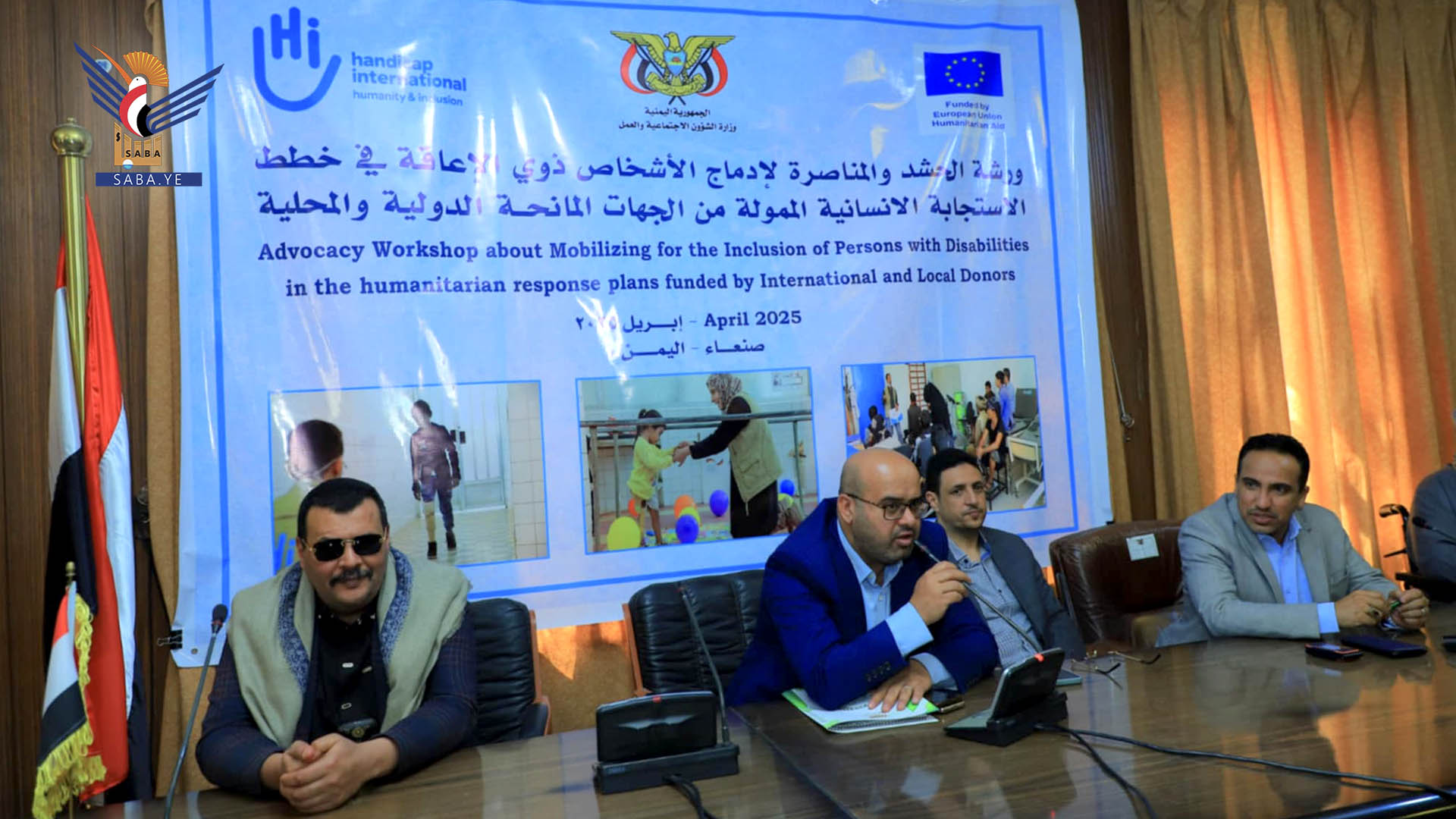Sana'a - Saba:
A mobilization and advocacy workshop aimed at implementing the National Strategy for the Inclusion of Persons with Disabilities 2021-2025 commenced on Wednesday in the capital Sana'a.
Organized by the Ministry of Social Affairs and Labor in collaboration with Handicap, the two-day event brings together 40 government agencies, relevant local associations, and international organizations.
The workshop's focus is on the implementation plan of the National Strategy, encompassing its objectives, initiatives, and activities designed to promote the inclusion of persons with disabilities.
At the opening ceremony, Yasser Sharaf al-Din, Assistant Undersecretary of the Ministry of Social Affairs and Labor, underscored the critical importance of protecting vulnerable groups, particularly people with disabilities, citing it as a humanitarian and legal obligation under international humanitarian law and UN conventions, including the Convention on the Rights of Persons with Disabilities and relevant UN Security Council resolutions.
Sharaf al-Din criticized the significant reduction in financial and programmatic support for vulnerable groups and the withdrawal of some international organizations, arguing that these actions contradict their founding principles, especially given the dire humanitarian situation in Yemen, where millions, including persons with disabilities and displaced individuals, rely on aid.
He condemned the withdrawal or reduction of support due to political pressure as a blatant violation of the principles of neutrality and independence enshrined in the UN's core values.
He questioned the concept of global justice when the most needy are marginalized by discriminatory decisions that weaponize starvation and impose sudden withdrawals without alternatives, asserting that this contradicts international conventions and principles that should not turn aid into a tool of political coercion.
Sharaf al-Din deemed such funding decisions without exhausting humanitarian and legal options as a dereliction of responsibility, especially considering the UN Refugee Agency's reports of over 20 million people in need in Yemen, with numbers rising as funding declines.
He urged international organizations to adhere to their charters and avoid making support programs subject to political fluctuations. He also called for reprioritizing funding for programs targeting persons with disabilities, displaced persons, and other vulnerable groups, ensuring their needs are integrated into all phases of the humanitarian response.
Furthermore, he advocated for stronger partnerships with local organizations possessing the expertise and capacity to reach target populations and urged the utilization of the workshop's outcomes to guide organizations' plans in supporting the needs of persons with disabilities, who constitute approximately 15 percent of the population.
Abdullah Binyan, President of the National Federation of Associations for the Disabled, referenced the Berlin International Declaration, which emphasized the protection and care of persons with disabilities and stipulated that 15 percent of projects should be allocated to their care and protection.
He stressed the importance of developing inclusive programs and plans as a fundamental human rights principle. He urged organizations in the disability sector to implement more projects addressing the needs of this vulnerable segment.
Amir al-Warith, Executive Director of the Social Welfare Fund, and Othman al-Selwi, Chairman of the Monitoring and Follow-up Committee of the National Strategy and Deputy Executive Director of the Fund for the Disabled, both emphasized the importance of coordinating efforts among government agencies, local disability organizations, and international organizations to meet the basic needs of persons with disabilities.
Al-Selwi noted that the Monitoring and Follow-up Committee has secured 25 rights for persons with disabilities, signed with relevant official entities, and that work is underway for their implementation.

| more of (Local) |




